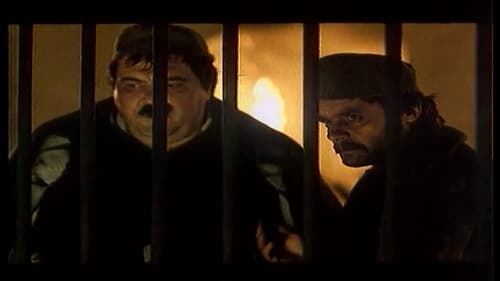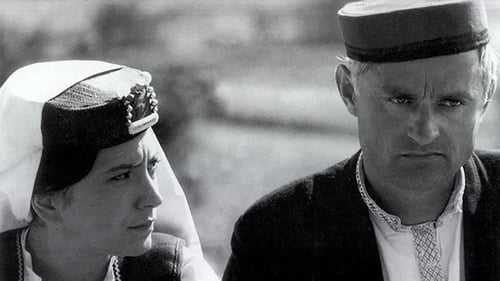
The story follows a group of Croatian refugees who have been forced to leave their hometown of Vukovar by Serbian forces during Croatia's struggle for independence. The people are settled at a railway station in a village near Vukovar, where they live in a train which is adapted to serve as a temporary accommodation.The situation grows dim as the date of their return proves to be uncertain, and the lives of the survivors and refugees becomes more and more complicated being burdened by PTSP and strong feelings of hope to return to their homestead.

Župnik
After spending 13 years in prison, forty-year-old Djuka Begovic returns to his home-village in Slavonia. He promises to his mother that he will begin a new and honest life. He finds new meaning in taking care of his daughter Smilja. He tries to chase away destructive thoughts that threaten to overwhelm him by throwing himself into hard work. However, everything around him reminds him of his past and his family's tragic destiny. His family was wealthy at the beginning of the twentieth century, but was destroyed by the capitalist powers that took over the villages and broke the traditional family cooperatives. Djuka's personal life was marked by constant conflicts with his father.

Đuka
This film is based on the true story about Jovan Stanisavljevic alias Charuga, the bandit who became a legend in post-WW1 Slavonia, Croatia.

Piano player is commissioned as an officer in WW1 Austro-Hungarian army. His sensitive soul is being tormented by war atrocities. And then he is ordered to hang an old lady...

Zoran is a graduate student of psychology and she gets a motorcycle as a present from his father. Being an unskilled driver, he stumbles upon a girl Biba and she breaks her leg. To prevent a possible lawsuit, he visits her in the hospital. They continue to see each other, and soon fall in love. Biba is a girl from suburban shanty, while Zoran comes from a well-to-do family, and his parents refuse to accept the girl. Young couple gets married and lives temporarily in Biba's home, where they drove out Biba's brother, a petty criminal. While looking for a new apartment, the marriage breaks down. Zoran shines at his exam with thesis on "People from socially broken families", while Biba gives birth to their child in the hospital.

In 1928 young Communist activist was arrested and put on trial for anti-state activity. Years later he became known as Tito, Communist president of Yugoslavia, and this TV-movie was made for the 50th anniversary of those events.

A film about a small-time gangster, a loser who seems is finally on the road of going straight.

Fratar
Jugoslávia, 1948, o ano da resolução do Bureau Inform e a ruptura de Tito com Estaline. A história ocorre durante um casamento no interior da Dalmácia na Croácia. Ante casa com uma mulher muito mais jovem, Visnja; O padrinho do noivo é Andrija, o herói de guerra partidário nascido nesta mesma aldeia, e membro do novo poder político comunista. Dois membros da Segurança do Estado jugoslavo travam a tradicional cerimónia de casamento. Na crescente atmosfera de medo, ninguém sabe quem será preso.

Šef
Os dois amigos estão a tentar seguir em frente com as suas vidas deixando as agruras da ociosidade. Um estudo existencial de vidas comuns vividas por dois trabalhadores de colarinho branco alienados, Vida Acidental foi a única longa metragem de Ante Peterlić, teorizador de cinema e crítico de filmes croata. O filme recebeu críticas medíocres e passou praticamente despercebido após a sua publicação, mas tem sido reavaliado décadas mais tarde como um dos melhores filmes croatas de sempre.







